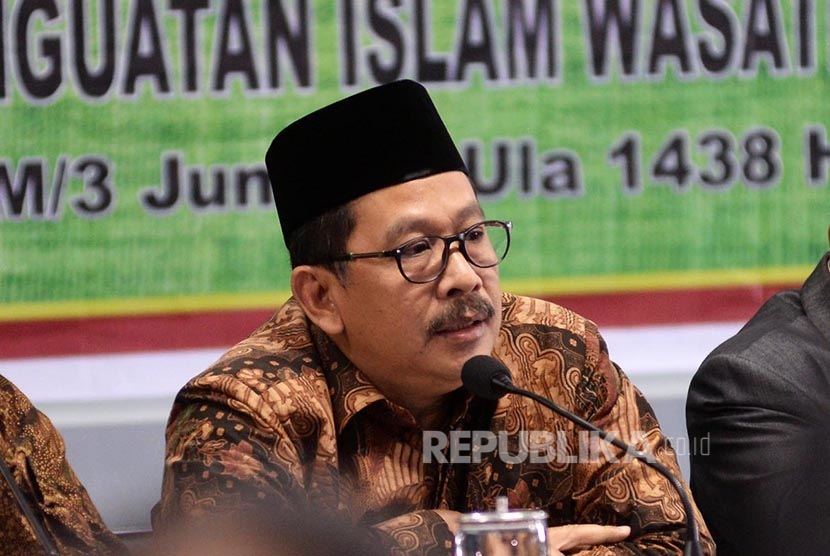REPUBLIKA.CO.ID, JAKARTA – While inaugurating Zero Point monument of Islamic Civilization archipelago in District Barus, North Sumatra, President Joko Widodo (Jokowi) asked all parties to separate religion and politics. According to him, it was important to avoid friction between the people.
Jokowi said the people should avoid horizontal conflict triggered by race and religion. "It should be separated, so the people would know which one is politics and which one is religious teaching," he said on Friday (March 24) as quoted by Antara.
Some people argued Jokowi statement was inappropriate. It was interpreted as firmly separated religions from politics.
The Deputy Chairman of the Indonesian Council of Ulama (MUI) Zainut Tauhid Sa’adi guessed the statement refers to the practical politics rather than political ethics or political values. He said it was indeed necessary to differentiate them.
“If he referred to practical politics, I can understand it. Practical politics is political activity aiming at getting the power. It is often followed by intrigues, slanders, and conflicts. The most important thing is how to achieve the objective (or target),” said him in a press release made available to Republika.co.id on Tuesday (March 28).
Zainut said in one hand, practical-political activities were conducted in the name of religions. In this case, religion became a tool of propaganda or provocation. In fact, many politicians did not bring religious values in their daily life.
In other hand, political ethics required religious values to be brought as a basic of political activities. When politics did not considered religious values, it would be dangerous for the people and the survival of the nation and state. Religious values were needed to guide the political life to bring safety and peace and to increase people’s welfare, Zainut said.
Furthermore, Zainut said as a Pancasila-based country, the noble values of Pancasila should be the basis in building political life in Indonesia. The values such as deity, humanity, unity, consultative, and justice, were not contrary to the religious values.
Therefore, said Zainut, politics and religions should run side by side. Indonesia was not a secular state which fully separated state and religions in its daily life. It was a Pancasila-based country which placed religions as sources of values and inspiration.
He added that MUI as a religion based community organization would not join the practical politics. MUI would encourage the development of political value or beneficial politics. It was politics based on ethics, manner (akhlaq), and moral to bring benefits to Indonesian people.
Meanwhile, the Ministry of Religious Affairs Lukman Hakim Saifuddin said the statement was not in the context of fully separating religions from politics. According to him, the context was to separate any bad motives and excesses of political activities from the noble process and objectives of religions.
“It seems to me, the president wanted to emphasize that there should not be confusion between the bad process and objectives of politics with the good process and objectives of the religions,” he said.
Lukman reminded that the statement should be interpreted by considering its context and perspective that bringing religion into a tool of keeping and maintaining the diversity as a God gift to Indonesian people.


